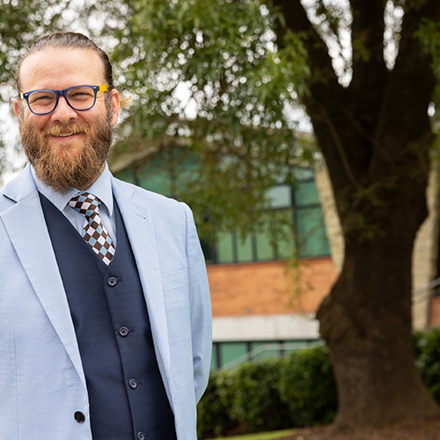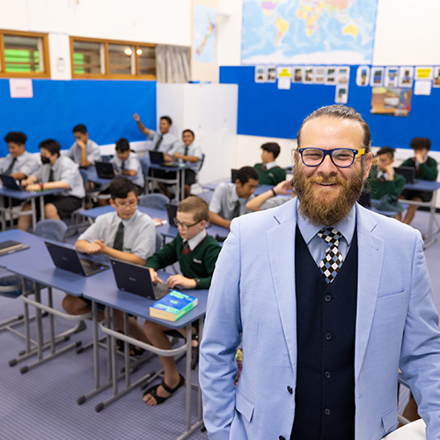How do we help our young people flourish?
That’s the core question behind Ako Puāwaitanga/Flourishing – a new science - and faith-based wellbeing curriculum launching at Dilworth this year after more than four years of research and development.
“We approached our school community – parents, students and teachers – with this question, and they gave us the ‘how’ that informs the curriculum,” explains Richard van Dam, Dilworth’s Director of Flourishing. “Growth, care and safety, vitality and connection – they’re the four waypoints on our compass.”
The curriculum, which runs from Year 7 to Year 13, sees students undertake three dedicated wellbeing sessions per week. Topics broach self-awareness, leadership, service, friendship, physical fitness, identity and belonging, kaitiakitanga (care for creation and the natural world), and more. All topics are overlaid with the Dilworth school values of respect, integrity, compassion, service and excellence, and underpinned by its Christian faith.
The curriculum will be delivered via weekly coached and taught sessions of 8-10 students. The sessions are led by a Pouako (coach), who will follow his or her group throughout their time at Dilworth. The format is recognised as best practise in wellbeing development, providing a localised response to students’ learning needs, and fostering a deep sense of whanaungatanga (belonging).
“The Pouako will retain all the data, understanding, care and knowledge gained throughout each young person’s journey. They become a significant adult in that person’s learning, which we know is one of the most effective ways of supporting educational achievement.”
Considering humans’ inbuilt negativity bias, the strategy, he says, is to emphasise working from a strengths based perspective - capitalising on practices that support health, vitality and wellbeing. This might be practising gratitude, coping strategies or giving and receiving positive affirmations (and knowing why these benefit our health).
“Stress isn’t a bad thing,” Mr van Dam says. “It motivates us and gets us out of bed in the morning, but it’s bad if we don’t know how to work with it and harness it. The research is clear – young people need to be happy, healthy and well in order to flourish as learners and achieve good educational outcomes”.
Success, he says, will be a flourishing culture within the school, increased emotional literacy, a greater sense of self awareness and self-regulation – students knowing what they’re feeling, why, and how to manage those emotions.
“Because we’ve developed an integrated curriculum, Ako Puāwaitanga is woven through our entire educational offering. When you ask parents what they want for their child, for the most part they say happiness. Contentedness. Satisfaction with life. From there comes drive and purpose. But that doesn’t happen by happenstance. It happens with purpose and intent, and design that’s based on values and wellbeing science.
“Most of all it comes from the acknowledgement that for a young person to make the most of their educational opportunity, we need to respond to not just their learning needs, but their spiritual, emotional, social and physical needs, too.”



